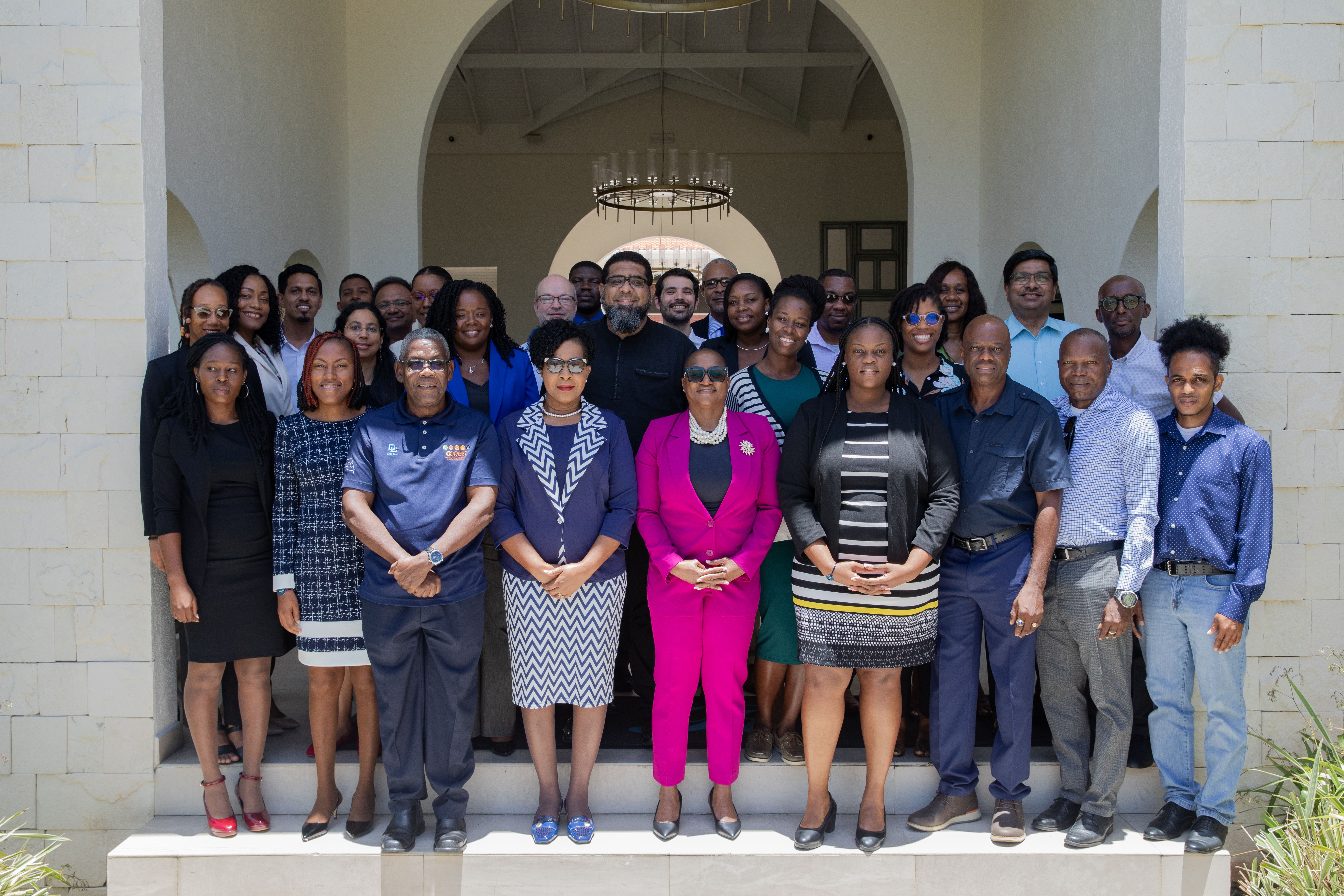Caribbean Efficient and Green Energy in Buildings Project launched; unites sustainable energy and pooled procurement for a greener OECS
OECS MEDIA RELEASE
The Organisation of Eastern Caribbean States (OECS) Commission joined Grenada, Saint Lucia and Guyana, the World Bank and the Caribbean Centre for Renewable Energy and Energy Efficiency (CCREEE) for the kickoff meeting to formally launch the Caribbean Efficient and Green Energy Buildings Project — termed the CEGEB project — a transformative regional initiative designed to accelerate the adoption of sustainable energy solutions and energy-efficient practices across public buildings in the participating countries.
The five-year project funded by the World Bank to the tune of US$131.8 million (approximately EC$356.2 million) represents a combination of grants and loans that will allow governments to demonstrate leadership in sustainable energy and the associated benefits. Under the project, close to 500 buildings will be retrofitted with energy efficiency measures and an estimated 50,670 kWp (kilowatt-peak) of solar photovoltaics is anticipated to be installed.
The CEGEB project also builds on the OECS Commission’s strong track record in pooled procurement, which for over 30 years has enabled Member States to access critical pharmaceutical drugs and medical supplies more efficiently and cost-effectively through a collaborative approach. By extending this model to the sustainable energy sector, the OECS Commission aims to leverage an aggregated demand to provide economies of scale, resulting in more affordable sustainable energy solutions for the region. This approach is also expected to stimulate the development of a regional market for energy-efficient technologies, create local green jobs, and strengthen the capacity of public and private stakeholders to manage and maintain green energy solutions.

Judith Ephraim-Schmidt, Programme Director, Sustainable Energy, of the OECS Commission, stated:
“Caribbean Green Buildings signals a new era of collaboration and innovation in the OECS for advancing our sustainable energy transition. By combining our sustainable energy expertise with the efficiencies of pooled procurement, we are delivering real solutions that will make our public buildings greener, our economies stronger, and our communities more resilient at a reduced cost.”
The Caribbean Green Buildings initiative marks a significant milestone in the OECS’ ongoing commitment to sustainable development as it embarks on the 2025-2035 Decade of Action for Sustainable Energy Development in the OECS. By strategically uniting the expertise of the OECS Sustainable Energy Unit with the proven success of the OECS pooled procurement mechanism, the OECS Commission is poised to deliver tangible benefits to citizens across the region. This innovative approach not only facilitates economies of scale and reduces technology costs but also sets new benchmarks and standards for energy efficiency and distributed renewable energy (DRE) deployment in public buildings. The CCREEE will also provide energy regulatory support for enhanced implementation of the project.
The retrofitted buildings and processes under the project will serve as best-practice models, demonstrating how coordinated regional action can reduce government energy costs, free up resources for other development priorities, and deliver visible environmental and economic benefits for OECS citizens.

The CEGEB Project is structured as a scalable, regional Series of Projects (SoP), enabling eligible Member States to join at different stages and ultimately benefit from a harmonised regulatory framework, standardised technical tools, and shared capacity-building resources. The Caribbean Green Building Initiative aims to accelerate regional integration by expanding access to concessional financing, which supports the OECS vision of a resilient, affordable, low-carbon future for all.
Watch/download a video - "Making Our Public Buildings GREEN" here:
Making Our Public Buildings GREEN [captioned].mp4
About the OECS Decade of Action for Sustainable Energy Development
The OECS has launched the OECS Decade of Action for Sustainable Energy Development (2025–2035), marking a unified commitment by Member States to accelerate the transition to affordable, reliable, and clean energy. Guided by the Basseterre Declaration, this initiative aims to expand renewable energy, boost energy efficiency, and reduce reliance on imported fossil fuels. By fostering innovation and resilience, the OECS Decade of Action will create green jobs, lower energy costs, and drive sustainable economic growth, positioning the Eastern Caribbean as a regional leader in sustainable energy.
Read more about the Basseterre Declaration and download here: https://www.oecs.oecs.org/en/our-work/knowledge/library/decade-of-action-for-sustainable-energy-development-basseterre-declaration-2025-2035/download

OECS Communications Unit









